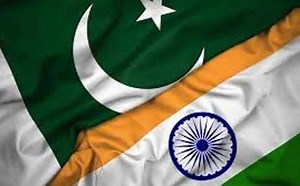
Sri Lanka on heightened alert over possible implications
- CNL Reporter
- May 9, 2025
- Political
- Sri Lanka
- 0 Comments
Amid fears that India and Pakistan are on the brink of a wider conflict, Sri Lanka currently remains alert on possible implications for the country and its people, particularly for those studying and working in these two countries.
As a country, Sri Lanka will maintain neutrality as its standard position as far as such a conflict is concerned. The government is yet to put out a statement expressing its position. However, through the Foreign Ministry informed Sri Lankan nationals in these countries to be in touch with the missions in New Delhi and Islamabad in case of escalation of tension after India launched strikes on Pakistan following the massacre of 26 civilians by a terrorist group.
India blamed the incident on a terrorist outfit linked to Pakistan. However, Pakistan has flatly rejected the allegation.
Currently around 1000 Sri Lankan students are in India and 500 in Pakistan.
In the event of a full- blown war, Sri Lanka fears whether it will impact trade leading to the rise in cost of living. India and Pakistan have closed their ports for each other.
A spokesman for the Essential Commodities Importers and Traders Association said that no problem had arisen as far as import trading is concerned at the moment.
“We import potatoes mainly from Pakistan . We may not be able get our cargos transported by ships touching Indian ports . Then, it will be a longer route leading to rise in cost. In case of war, insurance premium will also increase. It will again add to import costs,” he said.
Sri Lanka mostly imports its essential food commodities such as sugar and onion from India.
The successive Sri Lankan governments cited neutrality as the trademark of its foreign policy. Still, it faces challenges in the exercise of its policy. After the Pahalgam terrorist attack, President Anura Kumara Dissanayake telephoned Indian Prime Minister Narendra Modi and expressed solidarity with India in addition to condemnation of the massacre . It led to Pakistan asking why a terrorist attack on Indian soil was only condemned without uttering a word on a similar incident targeting a train in Balochistan.
In the event of escalation of tension into a full- scale war, maintaining neutrality in its truest sense will be challenging for the Sri Lankan government.
After the terrorist attack, two groups of people demonstrated against Pakistan in Sri Lanka. It triggered fears whether some people loyal to Pakistan will demonstrate against India in the similar fashion here. The Sri Lankan Defence Ministry beefed up securty for the Indian and Pakistani High Commissions as a result. Further escalation of tension between India and Pakistan will lead to issues for Sri Lanka.
After the launch of Operation Sindoor, Indian Foreign Secretary Vikram Misri said at a press conference in New Delhi, “The attack in Pahalgam was marked by extreme barbarity, with the victims mostly killed with head-shots from close range and in front of their families. Family members were deliberately traumatized through the manner of the killing, accompanied by the exhortation that they should take back the message.
The attack was clearly driven by the objective of undermining the normalcy returning to Jammu & Kashmir. In particular, it was designed to impact the mainstay of the economy, tourism, with a record 23 million tourists visiting the valley last year. The calculation, presumably, was that harming growth and development in the Union Territory.
A statement from the Prime Minister’s Office of Pakistan, in the meantime, said,
“Pakistan has been emphatically rejecting Indian allegations claiming the presence of terrorist camps on its territory. It would also be recalled that immediately after 22 April 2025, Pakistan made a sincere offer for a credible, transparent and neutral investigation, which unfortunately was not accepted.”

